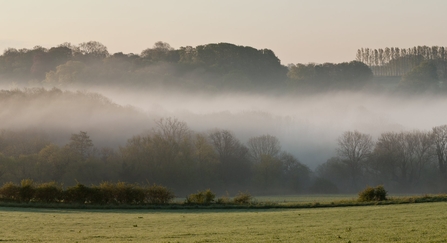The recent State of Nature Report revealed that one in seven species in the UK are at risk of extinction and 58% of species are in decline. The Wildlife Trusts have long-called for ambitious new laws to allow nature to recover and so are delighted to see that the new Environment Bill will include legally-binding targets for biodiversity.
Paul Hadaway, the Director of Conservation for Kent Wildlife Trust, says:
“We welcome the commitment to creating local nature recovery strategies across Kent and the rest of England and we are already developing our vision for Nature Recovery Networks across Kent and regionally with our partner Wildlife Trusts and other conservation bodies. These need to be coherent, ambitious and based on robust evidence to ensure we give nature the space and protection it needs to recover.
There remain a number of concerns for us, particularly given the development pressures Kent is subject to at the moment. We are deeply concerned that large national infrastructure projects will not be subject to net gain and that the legal requirements on developers to improve nature on and around developments will not apply to the biggest schemes. This has the potential to be very damaging in Kent given the number of large infrastructure projects already in the planning stages.
We are further concerned that the new Office for Environmental Protection, independent watch dog mentioned in the act will need to have sufficient independence and enforcement powers to ensure it is fit for purpose. Currently this is not clear.
Kent Wildlife Trust alongside the other Wildlife Trusts, NGOs and conservation bodies are ready to engage with Government and their conservation agencies to lead the development of Nature Recovery Networks and of natural climate change solutions which can form a key component of these networks in addressing the twin challenges recognised by Parliament in their declaration of a Climate and Environment Emergency”.

